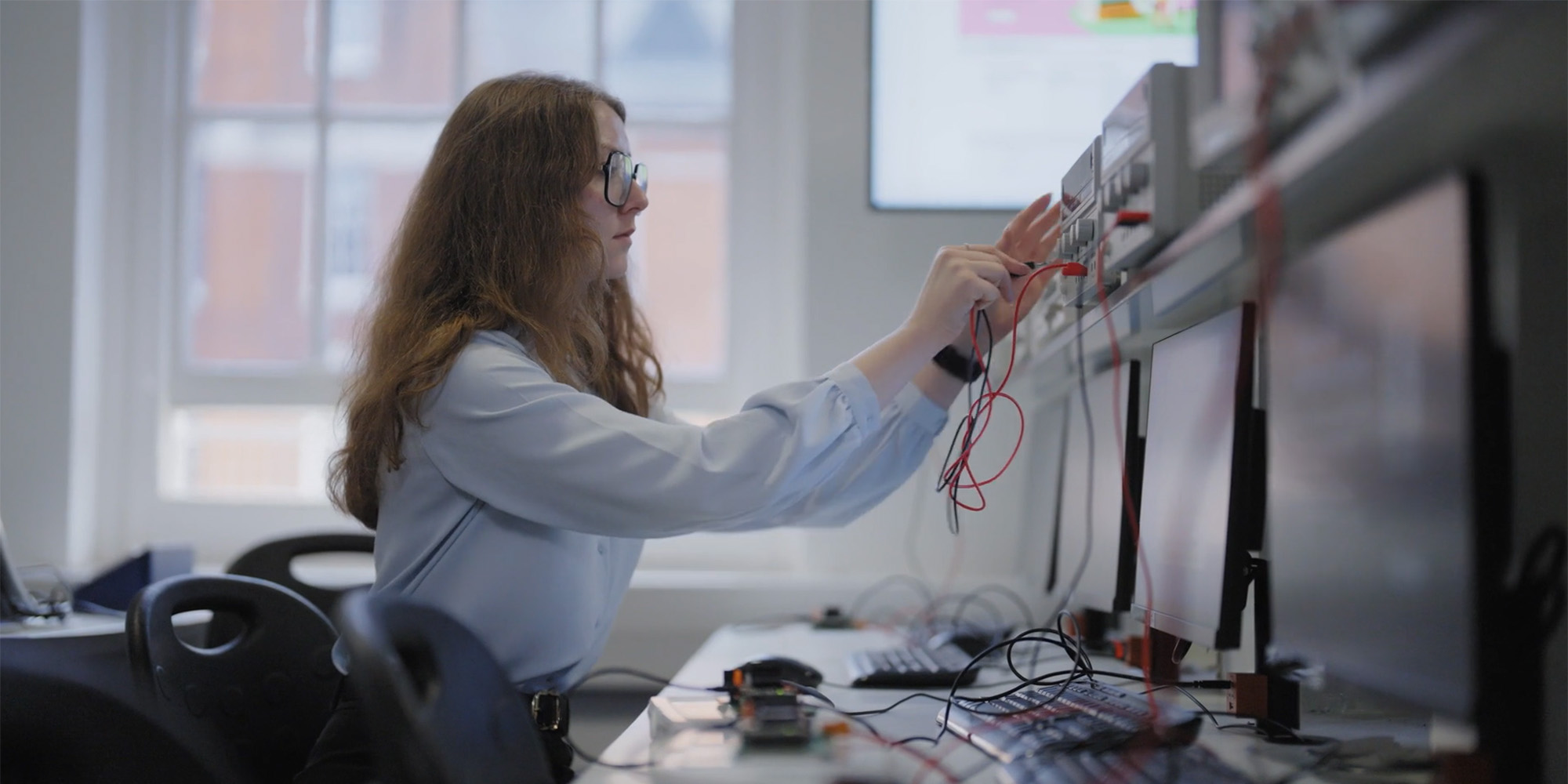Prepare for high in-demand careers in computing or engineering
MSc Digital Engineering, and MSc Digital Engineering with Industrial Practice, will be welcoming students from September 2025. These courses will be excellent choices for students interested in the fields of electromechanical engineering, manufacturing engineering, robotics and machine learning. The Industrial Practice course will allow students to complete a relevant placement year to build skills and gain CV-enhancing experience after their Master’s degree. The course has two option sets: Applied AI or Design and Manufacturing, and the choice between pathways will depend on the student’s personal interests and career goals.
The course has been designed to prepare students for careers that involve working with complex digital systems, as part of either information technology teams or manufacturing teams. It will be an excellent opportunity for students who may have gained broader undergraduate qualifications in Electrical and Electronic Engineering, Computer Engineering or Product Design and Development, to specialise in digital engineering.
There is high demand in the UK across sectors for experts in the design, manufacture and maintenance of digital systems, whilst the use of artificial intelligence continues to grow, with AI being into systems across sectors. Graduates may see themselves working for big businesses to support or streamline their systems, or supporting or leading on the manufacture of computers and robotics. In the University’s modern and ever-evolving computer labs, which include telecoms, power, control and robotics labs, students of the course will advance their knowledge and understanding of complex digital systems and will hone the flexible skills needed to adapt to systems as they change and to new technologies as they emerge.
Choose between Applied AI or Design and Manufacturing
The two option sets students can choose from have overlapping modules to provide a core foundation in areas of digital engineering. Overlapping modules include Intelligent Distributed Systems and Digital Engineering. All students must also complete an individual research project – a way of demonstrating their knowledge as they carry out research to produce a high-quality piece of work in an area of interest to them. Students on the Applied AI pathway can then choose from modules including Design of Advanced Electronic Systems, Machine Intelligence and Human and Machine Robotics, whilst students on the Design and Manufacturing pathway can choose 75 credits from the following options: Strategy and Management, Computer Aided Manufacturing, Product Design Engineering and Rapid Prototyping and Manufacturing.
The University’s School of Engineering is based at the Medway Campus, which is within commuting distance of Central London. The site was a naval barracks that saw engineering feats with the building of ships including the HMS Pembroke. The University of Greenwich itself has been providing taught engineering programmes since 1935, and the School of Engineering today boasts a wealth of knowledge and research achievements from its community of academics and researchers, and fosters links to many engineering companies locally and nationally.
Make your mark on ground-breaking research
The final year project is an opportunity to make a mark on the ground-breaking research taking place in the Faculty of Engineering and Science. Research into artificial intelligence at the University is embedded in its Centres for Sustainable Cyber Security and Centre for Advanced Simulation and Modelling. The University is also partnered with the Turing Network.
Meanwhile, students on the Design and Manufacturing Pathway may wish to seek out opportunities with the University’s Centre for Advanced Manufacturing and Materials, which has contributed its expertise to projects including a partnership with US-based manufacturer Cummins Inc aimed at increasing the efficiency of product design and testing, or with the Wolfson Centre for Bulk Solids Handling Technology.



